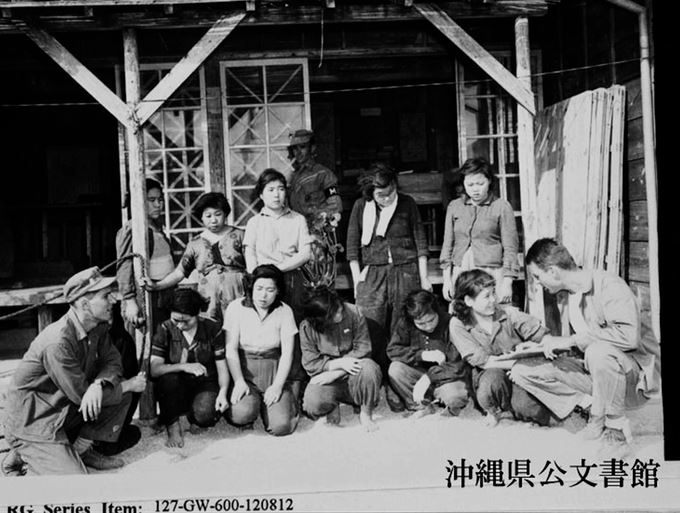Photo from US Marine Corp via Wikimedia Creative Commons
A paper from a Harvard professor received widespread criticism for concluding that those recruited as comfort women did so voluntarily rather than being forced into sexual slavery, The Harvard Crimson reports.
Many Korean media outlets have pointed out the paper’s author, J. Mark Ramseyer, received the Order of the Rising Sun from the Japanese government in 2018, speculating that there was undue influence on his paper. Ramseyer has denied such allegations.
Sankei Shimbun, a conservative, nationalist Japanese newspaper, featured the paper prior to its publication in the International Review of Law and Economics academic journal.
Various legal scholars and historians from both South Korea and the United States have spoken up about the historical and logical inaccuracies in Ramseyer’s paper. Many of their critiques revolve around two of Ramseyer’s main arguments.
In the first, Ramseyer claims that recruiters and brothel operators were the main culprits of the comfort women and station systems rather than the Japanese government or military.
“Ramseyer made the error of completely ignoring the fact that these recruiters were working under Japanese military or government orders,” Yuji Hosaka, a political science professor at Sejong University in Seoul, told The Harvard Crimson.
Hosaka also pointed out to the existence of Japanese documents that offered evidence of the Japanese military selectively choosing recruiters to operate these comfort stations.
In the second argument, Ramseyer claimed that comfort women were willing participants of a brothel contract. After they received financial benefits, they were free to return home.
Katharine H.S. Moon, professor of Asian studies and political science at Wellesley College, highlighted Ramseyer’s failure to acknowledge the context surrounding a comfort woman’s entrance into a brothel contract.
“How do we explain whether a 14- or 16-year-old girl knew what she was signing even if she signed it, especially in a Korean society at the time that was not accustomed to contracts and related legalism and didn’t grant such agency to girls and women?” Moon told The Harvard Crimson.
Student groups at Harvard have mobilized in response to the paper. The Korean Association of Harvard Law School released a statement criticizing the conspicuous lack of Korean scholarship in Ramseyer’s paper, stating, “He does not engage with the historically validated and important perspectives of scholars who have worked to amplify the testimonies of these women. To ignore this work is to create the false impression of a settled history of an imagined world where Korean comfort women were free to contract for higher wages paid at their preferred schedule.”
The statement also acknowledged Ramseyer’s academic freedom to research and publish his views, stating, “As students, we have the utmost respect for academic freedom, including that of Professor Ramseyer. But at the same time, we firmly believe that a sincere commitment to academic freedom is inseparable from the obligation of academic integrity as part of a genuine search for truth.”
As of the writing of this article, over a thousand individuals from law schools across the nation have signed the statement.
At the same time, the Harvard College Korean International Student Association circulated a petition throughout campus, calling for a formal apology from Ramseyer to the community of comfort women; an official address of acknowledgement from Lawrence S. Bacow, President of Harvard University, and John F. Manning, Dean of Harvard Law School; and a consideration from the International Review of Law and Economics academic journal to withdraw Ramseyer’s article from publication.
The petition has received signatures from multiple organizations and individuals affiliated with Harvard.
While the journal has not removed the article from its online database, Elvesier, the journal’s publisher, has delayed print publication of the paper.
“Although not printed, it is already assigned to the March issue (Volume 65) of the journal and is considered final,” Andrew Davis, the vice president of communications for Elsevier, told The Harvard Crimson. “The print issue is being temporarily held so the Expression of Concern, and comments/replies, can be published in the same issue as the original article to give readers access to the fullest possible picture.”
The article has been available online since December 1, 2020.
AsAmNews has Asian America in its heart. We’re an all-volunteer effort of dedicated staff and interns. Check out our new Instagram account. Go to our Twitter feed and Facebook page for more content. Please consider interning, joining our staff, or submitting a story.




My initial reaction, which is vulgar and uncharacteristic of me is: “What a Dickhead!”
It is unfathomable why men must continue to question what has already been proved in regard to Comfort Women, or anyone rebuke the facts. This sexism, even racism stands out as they refuse to believe these Asian women and their horrific experiences. The ol’ and tired defense that it is the victim’s fault for being raped.